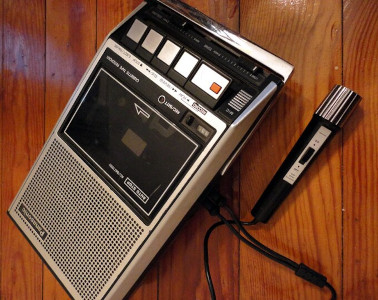To or Not To Create an Audiobook
The old school cassette recorder is funny, right? I had one just like that. When The Beatles album, Let It Be, came out I recorded it on a cassette so I could take it with me everywhere. At night I’d listen to it in bed using the one little ear bud that was the norm for such things back then. Ah, today there are many choices. I have been trained and have done voice over work (games & training videos). I wanted to do some audiobook recordings for LibriVox some years ago but dealing with the technical aspects of Audacity were tedious and I gave up. So when my cousin begged me (she said Please) to create an audiobook of my SAAI novel the first thoughts I had were how tedious that would be because I assumed I’d do it myself using Audacity. Me. The AI immersed silly woman did not, at first, think of using AI to convert my book. Me. The author who always uses the “Read Aloud” function in Microsoft Word as part of my editing process. I crack myself up. There are so many options out there for creating audiobooks it’s kind of hard to decide so here’s what I’ve learned in my pursuit of knowledge in that area. Of course, I eventually get around to asking my AI Assistant for help and was advised as follows. Q: What are the most secure (not risking my copyright) methods of using AI to create audiobooks? A. To create audiobooks using AI while protecting your copyright and creative control, you’ll want to focus on tools and workflows that respect authorship, offer licensing clarity, and minimize the risk of voice misuse or unauthorized distribution. Here’s a breakdown of the most secure methods: 🔐 1. Use AI Tools That Offer
